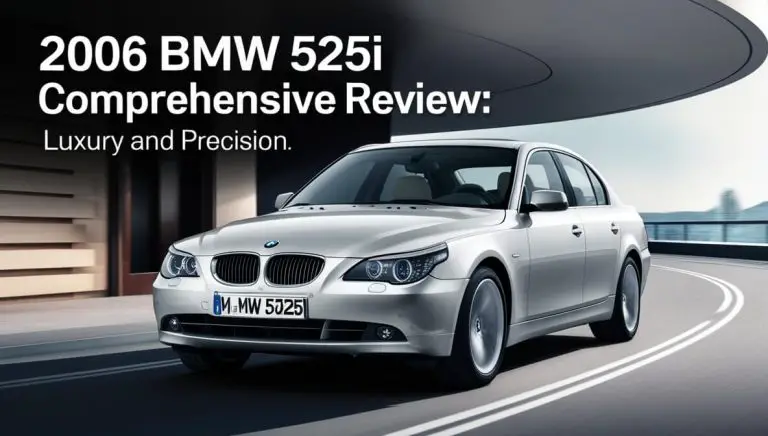F80 M3 Reliability: The Ultimate Guide to Owning BMW’s Iconic M3
The BMW M3 has captivated driving enthusiasts ever since the first generation E30 M3 arrived in 1986. While the recipe has evolved over the years, BMW’s iconic high-performance sedan continues to deliver an intoxicating mix of luxury, technology, and driving excitement.
When the F80 M3 debuted in 2015, it represented a new era for the storied nameplate. With a lightweight aluminum chassis, a turbocharged inline 6-cylinder engine, and cutting-edge performance technology, the F80 M3 thoroughly modernized BMW’s ultimate driving machine.
But how reliable is BMW’s contemporary M3, and what can owners expect in terms of running costs and maintenance? Any high performance sedan requires greater care and diligence to ensure mechanical integrity as the miles add up. However, the M3 also sees enthusiast owners pushing their cars to the limit on tracks and twisty back roads far more than a typical 3-Series.
This comprehensive reliability guide takes an in-depth look at the F80 M3 to provide current and prospective owners with clarity on the model’s common issues, maintenance requirements, and ownership costs. Read on to learn all about ensuring a happy and hassle-free relationship with the legendary F80 M3.
How Reliable Is the F80 M3?
Overall, the F80 M3 is a very solid modern performance sedan when properly maintained. The S55 twin-turbo inline 6-cylinder engine delivers incredible thrust while retaining high revving BMW character. The chassis and suspension honor the M3’s handling pedigree with incredible grip and reflexes. Inside, the cabin offers both luxury and cutting-edge technology expected in a contemporary BMW coupe.
The F80 M3 benefits from decades of BMW experience developing high performance power plants and chassis. Robust engines like the S55 are put through rigorous testing and enrichment by BMW’s heralded M division before finding their way into an M3. During development, critical components are reinforced to handle the greater stresses. The cars themselves are engineered to exacting standards befitting the storied M3 badge.
However, some common issues have emerged on the F80 M3 that owners should be aware of, especially as the cars accumulate mileage and years. This includes problems found on the S55 engine, the cooling system, the suspension, and other wearing components. Luckily, the M3 community and BMW service technicians have identified solutions to rectify the most common pain points.
While not flawless, the F80 M3 offers strong reliability and lower cost of ownership compared to rivals like the Mercedes-AMG C63 and Audi RS4 when properly maintained. Issues do occur, but can be minimized by following the recommended maintenance schedule, addressing problems early, and employing preventative care. Use this guide to understand the most common issues, best practices for maintenance, and what to expect in terms of ownership costs. With diligent care, the M3 will provide many miles and years of motoring enjoyment.
Common F80 M3 Problems and Issues
No performance sedan is immune from mechanical issues, especially when subjected to hard driving. Here are some of the most prevalent problems reported by F80 M3 owners:
Rod Bearing Failure
The S55 engine can suffer premature rod bearing failure, usually detected by a knocking sound from the engine. This is often attributed to factory assembly issues leading to inadequate bearing tolerances or lack of lubrication when engines are cold. In severe cases, it can lead to total engine failure if not addressed proactively. While still infrequent, rod bearing problems are one of the more serious issues to monitor on F80 M3 models.
Many owners choose to proactively upgrade the bearings as preventative maintenance during major engine work or rebuilds. Others opt to regularly check bearing clearances to identify any issues early on. Using quality full synthetic oil and minimizing cold starts can help maximize bearing life.
Coolant System Issues
Problems with the F80 M3’s cooling system are very common. The water pump is often implicated, as are failed thermostats leading to improper operating temperatures. Coolant leaks, loss of coolant, and overheating issues also occur as these high performance engines generate substantial heat. Replacing the water pump and thermostat proactively is recommended by many owners once out of warranty.
Oil Leaks
Another common problem area is oil leaks stemming from a variety of sources. The valve cover gasket, oil filter housing gasket, and rear main seal are prone to seepage. Oil pans can also be bent or damaged from road debris. Identifying the exact source of any drips or spots is critical to properly rectify leaks. Use of high quality gaskets and seals, along with careful installation, helps minimize future leaks during repairs.
Carbon Buildup in Engine
Like other modern direct injection engines, the S55 is prone to carbon buildup on the intake valves and ports when exposed to short trips and frequent cold starts. This accumulation of carbon and gunk robs power over time. Every 50,000 miles or so, the intake valves should be cleaned via walnut blasting to restore intake airflow and power delivery.
Suspension and Steering Wear
Given the M3’s tight suspension calibration and stiffness for track-capable handling, components like strut mounts, control arm bushings, tie rods, and steering rack bushings tend to wear more quickly compared to a standard 3-series. Expect to replace these items between 50-100k miles depending on driving style and road conditions. Shocks and dampers also may need rebuilding or replacement in high mileage examples.
In addition, the electronic power steering system can suffer failures of the power steering motor, steering angle sensor, or EPS module resulting in loss of power assist. Diagnosis of steering system faults requires dealer-level software and coding capabilities.
Other Wear Items
Other common wear parts include clutch assemblies and flywheels for the manual transmission models. The clutch biting point tends to change as the components age. Brake pads and rotors are also more frequently replaced given the M3’s performance capabilities. Check and replace the engine air filter periodically as well.
Recommended Maintenance Schedule and Key Items
- Oil changes every 5,000 miles or 6 months – Use quality full synthetic oil designed for turbocharged engines
- Air filter replacement every 20,000 miles
- Spark plug replacement every 60,000 miles – Use proper heat range plugs designed for forced induction motors
- Coolant flush every 3-4 years – Use quality BMW coolant for aluminum engines
- Brake fluid flush every 2 years – Upgrade to high temp racing fluid with higher boiling point
- Walnut blast intake valves every 50,000 miles – Removes carbon buildup to restore engine performance
- Check rod bearings during engine rebuilds or every 60-80k as precaution – Consider upgrade to aftermarket bearings for longevity
- Suspension/steering inspection every 50,000 miles – Replace any worn components
The above represent the major service items to proactively address on the F80 M3. Adhering to this preventative maintenance schedule minimizes the chances of encountering major issues down the line. Be sure to use quality components like OEM BMW or reputable aftermarket parts.
Cost of Ownership – What to Budget For
Like any high performance sedan, the F80 M3 comes with increased ownership costs compared to mainstream models. Repair and maintenance bills will be higher both in terms of parts and labor rates at BMW service centers. The M models deserve the investment to keep all components in peak operating condition.
Here are typical costs to budget for when owning an out-of-warranty F80 M3:
- Oil changes – $150 per service at an independent BMW specialist
- Air filter replacement – $80 every 20k miles
- Coolant system repairs – $500 – $2000+ for water pump, thermostat repairs
- Carbon cleaning service – $600+ every 50k miles
- Spark plug replacements – $500 parts + labor every 60k miles
- Brake pad/rotor replacement – $1200 per axle
- Tires – $300+ per tire for staggered high performance tires
- Suspension repairs – $2000+ for components like shocks, control arms
- Clutch/flywheel – $3000+ for replacement clutch kit and flywheel resurfacing
While not inexpensive, following the above maintenance schedule and addressing issues early maximizes reliability. The total cost is reasonable for a contemporary high performance sedan, especially considering the M3’s stellar driving experience and luxury appointments. The peace of mind in proactively maintaining your investment is invaluable as well.
Maintaining an Older F80 M3
For those considering purchasing a higher mileage F80 M3 outside of the factory warranty period, be sure to vet the car’s service history closely. Request maintenance records to confirm the critical items above have been addressed.
In addition to inspecting wear items like brakes, tires, and suspension components, pay close attention to the engine and drivetrain. Check for oil leaks, coolant leaks, or codes indicating issues with the turbochargers, wastegates, or rod bearings. Performing a prepurchase inspection at a BMW specialist can identify any underlying issues or needs.
When buying an older F80 M3, budget for some initial outlays to refresh wear items and address deferred maintenance needs. Factor these expenses into negotiations on price. With some upfront rejuvenation of neglected maintenance, an older M3 can offer many more miles of motoring enjoyment.
Modifying an F80 M3
One of the allures of the M3 is its immense tuning potential. With some bolt-on modifications and a tune, the S55 engine can easily produce over 500 horsepower to the rear wheels. However, upgrading the power output does stress the drivetrain and requires extra diligence to reliability.
Here are some best practices when modifying an F80 M3:
- Start with basic bolt-ons like a downpipe, intake, and exhaust system to unlock more power while minimizing strain on the engine.
- Consider upgrading the intercooler, oil cooling system, and engine mounts before more aggressive power mods.
- For big power goals, look into building the engine with forged internals, upgraded rods, pistons, and bearings to withstand much higher power levels. This also provides the opportunity to address any wear during assembly.
- Upgrade the transmission and differential fluids to heavier grades designed for track use.
- Install additional supplementary oil coolers for the engine, transmission, and differential to manage heat when pushing hard.
- Monitor engine vitals like timing chain stretch and crank/rod bearing tolerances whenever the motor is apart to identify wear early.
With the right supporting mods and diligent maintenance, the S55 powerplant can handle impressive power levels reliably. Work in measured steps and continually monitor engine health.
Is Buying an Extended Warranty Wise?
Given the potential repair costs on an out-of-warranty F80 M3, buying an extended service contract or warranty can provide substantial peace of mind. There are several tiers and terms to consider:
- BMW Extended Service Contracts – Up to 6 years/100k miles from in-service date. Comprehensive coverage with some limitations. Generally costs $3000-$4000.
- Third Party Warranties – Typically 5 years/50k-125k miles from contract purchase date. More affordable at around $2000-$3000 but examine terms closely.
- Certified Pre-Owned Warranty – 1 year/unlimited miles comprehensive CPO warranty, but may be limited time left.
While not inexpensive, the extended repair coverage can easily pay for itself after just one or two major issues. Given the potential for four figure repair bills on components like the turbochargers, engine, or electronics, the extra protection is reassuring. Just be sure to work with a reputable provider that will properly honor claims.
Maintaining and Modifying an F80 M3
A summary of best practices when owning an F80 M3:
- Adhere to the recommended preventative maintenance schedule for critical items
- Address issues early before they lead to more severe failures
- Use quality OEM or reputable aftermarket replacement parts
- Consider an extended service contract or warranty for costly repairs
- Vet cars thoroughly and budget for deferred maintenance on older models
- Upgrade components to handle more power if modifying or tuning
- Continually monitor engine health and vitals when increasing performance
Conclusion – Enjoying the Ultimate Driving Machine
The F80 M3 delivers extraordinary driving engagement and excitement balanced with everyday livability. While issues do occur, especially as cars age and accumulate mileage, the M3 offers strong reliability and lower cost of ownership compared to other high performance sedans when properly maintained.
Use this guide to understand common issues, best practices for maintenance, and expected costs. Address problems early and perform preventative service religiously. With diligent care, the M3 will provide many miles of motoring enjoyment as BMW intended their ultimate driving machine to deliver.







